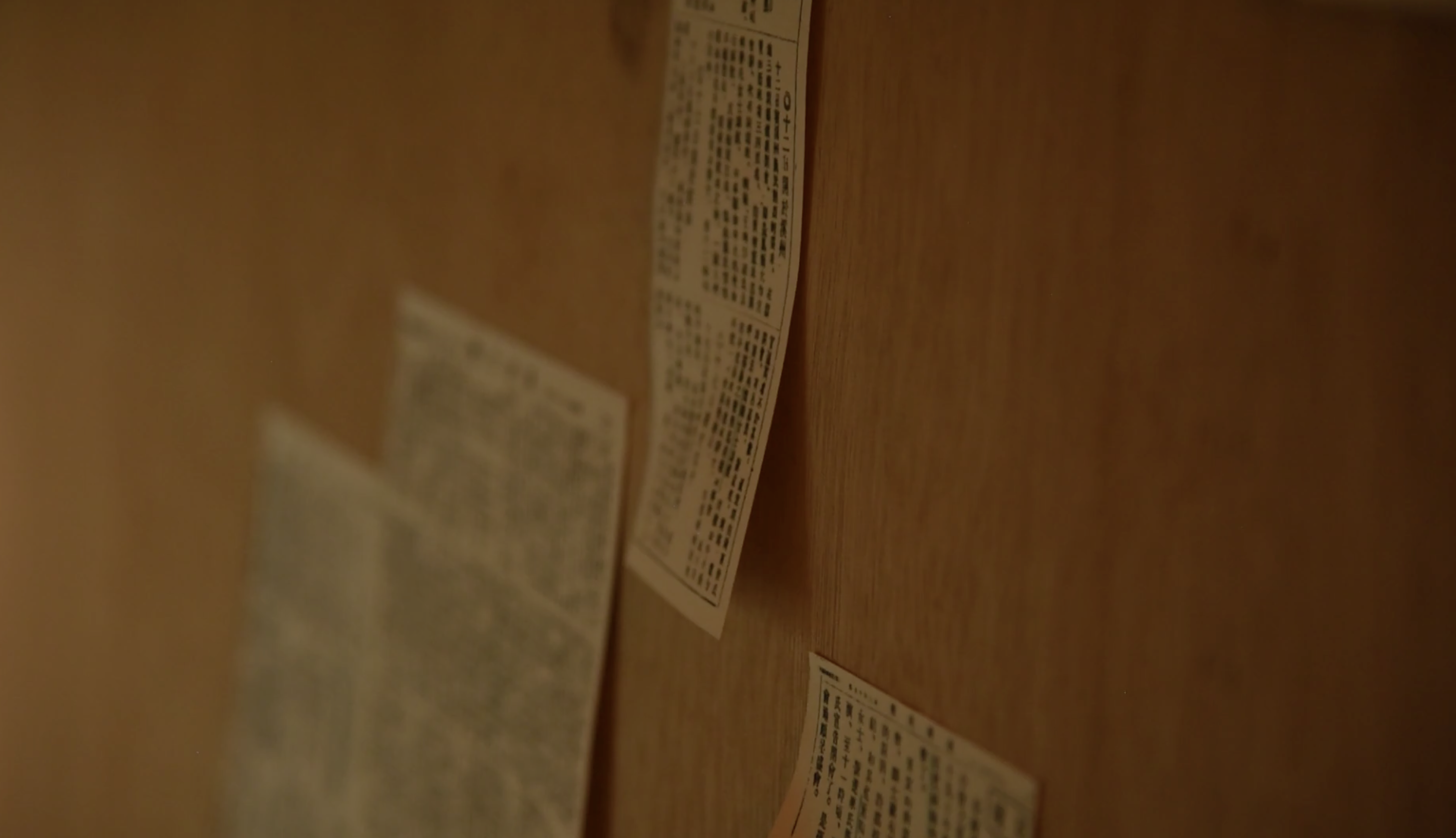鱸鰻查某
Lady Riot

2024
文件、歌曲 Documents and Songs
認識葉陶(1905-1970),是在多年前閱讀白色恐佈資料的時候。起初,我以為她只是楊逵的太太、政治犯的家屬,後來才發現,自己的認識有多麼侷限。葉陶,是跨越日本殖民和戒嚴時代的革命份子;是農民組合中善於演講的女性幹部;是結婚當天被日本警察抓去關押的新娘;是被關在二二八死牢裡歌唱民謠的鬥士。
當我聽著〈賣花阿婆〉這首收錄於《楊逵:鵝媽媽出嫁》專輯裡的歌曲時,我意識到她的生命如此豐富,卻依然在男性主導的社會環境、歷史檔案中,變形為一位面貌模糊、悄然無聲的女性形象。因此,我試圖描繪葉陶奮鬥基進的一面、補足她生命不同階段的面貌;融合我所熟悉的臺灣女性身影,重構文本、改寫歌詞、翻唱歌曲。透過連結展場內與外的樓梯間,想像一個於社會和家庭之間奔波的陰性身體。
I came across Yeh Tao (1905-1970) when searching for and studying on Taiwan White Terror archive. At first, I regarded her merely as Yang Kui’s wife and a political prisoner’s relative. Later, I found myself limited within a narrow view. Actually, Yeh Tao is a revolutionary under the Japanese Colonial Regime and Postwar KMT Martial Law. She is one of the leaders of Union of Taiwanese Peasant (UTP) and good at public speech. She was arrested by Japanese police at the morning of her wedding, and thus a bride behind bars. She is a fighter singing folklore in death prison of 228 Accident.
However, when listening to “Flower Seller Granny,” a song compiled in the musical album Yang Kui: Mother Goose Gets Married, I realized that, despite her lavish life, Yeh Tao is still narrowed down and transformed into a shadowy and silent woman under the patriarchal society and male-dominant ar- chiving. Thus, I attempt to portray the radical face and rich façade of Yeh Tao in her life. With Taiwanese female figure, I’m familiar with, my work recomposes the text, rewrites the lyrics, and re-sings the song. By connecting the outer and the inner corridor of the exhibition space, this work imagines a female body rushing to-and-fro between domestic domain and social space.




歌詞改編:李昭寬、劉紀彤
演唱:吳素月
特別感謝:蔡宛璇、李嘉修
照片提供:林育全、劉紀彤
Author of the adapted lyrics: Li Chao-kuan, Liu, Chi-tung
Singer: Wu Su-yueh
Special Thanks: Tsai Wan-shuen, Li Chia-hsiu
Photo: Lin, yu-Quan, Liu, Chi-tung
